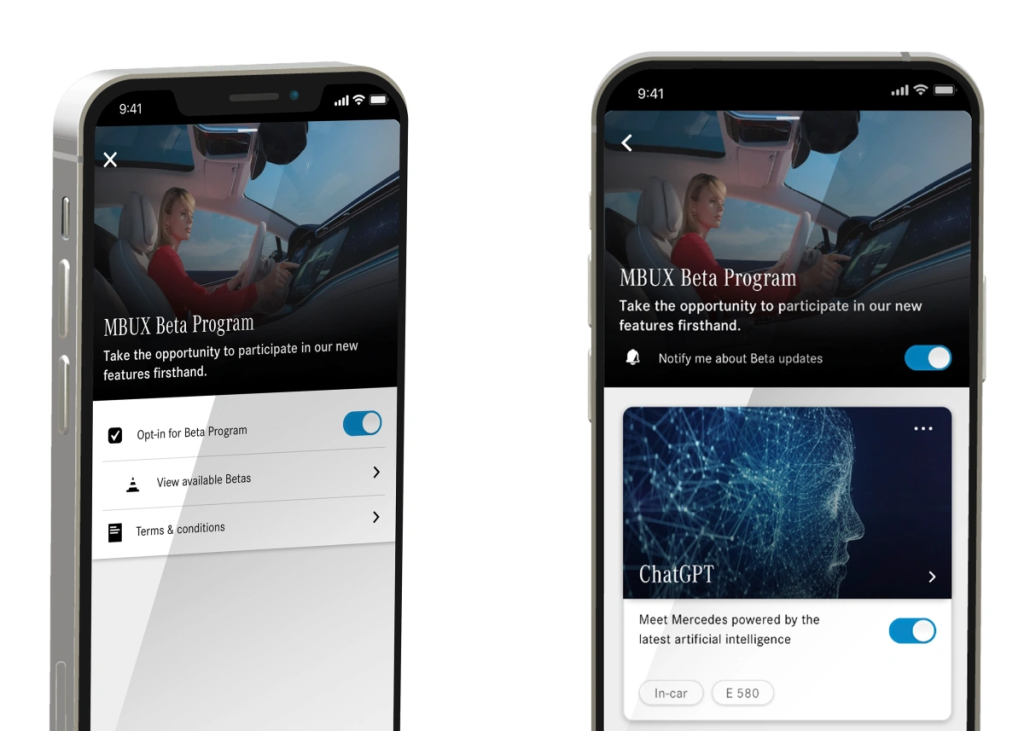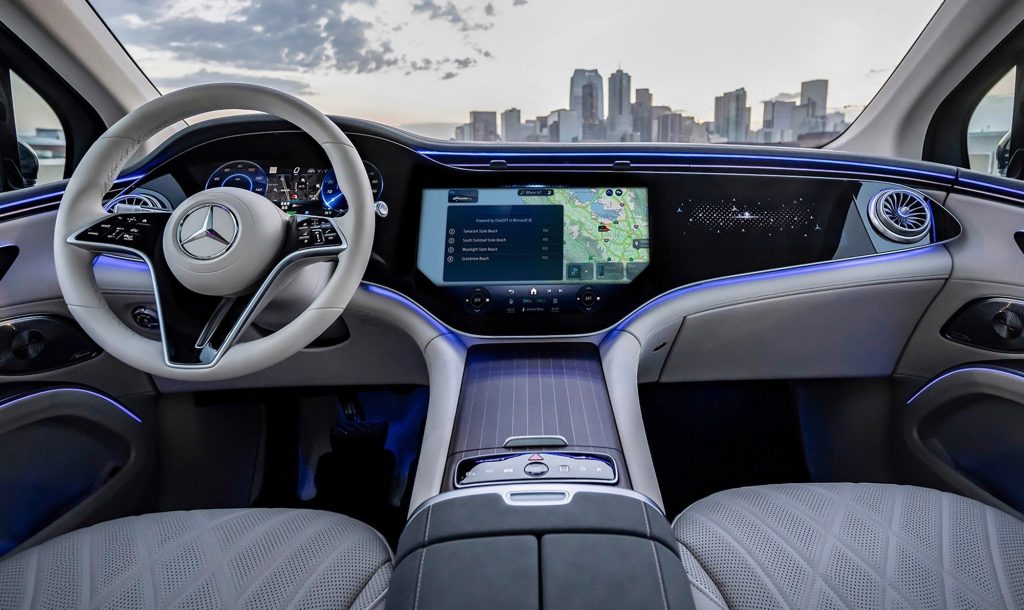TechCrunch – June 15, 2023
Mercedes owners in the U.S. will soon add a new luxury to their already luxurious vehicles: ChatGPT. The automaker is adding OpenAI’s conversational AI agent to its MBUX infotainment system, though what it could possibly be needed for is hard to say.
U.S. owners of models that use MBUX will be able to opt into a beta program starting tomorrow, June 16, activating ChatGPT functionality. This will enable the highly versatile large language model to augment the car’s conversation skills. You can join up simply by telling your car “Hey Mercedes, I want to join the beta program.”
It’s not really clear what for, though. After all, a car is a pretty well constrained environment. People need to drive, navigate, and control their media and the car’s basic functions, and certainly a voice interface is sometimes the safest or best option for doing so without taking their eyes off the road.
ChatGPT, on the other hand, excels in seeming human while performing a back-and-forth on any topic, and inventing new facts to keep the exchange running smoothly. It can summarize and synthesize existing content, write or plagiarize code, or help you come up with wedding vows. Are any of these things you would want to do while driving, or even in the passenger’s seat?
Sure, a relatively complex query like “what’s a good independent sandwich shop on my route that’s within half a mile of a gas station” might stump a traditional voice interface. If you don’t have a passenger to look that up for you, it might be nice to have that capability. Who is asking for a new dinner recipe on the road? Is that really the best use case they could come up with?
As usual, the benefits of the technology are somewhat notional and surely no driver asked for this capability. Perhaps it is simply that Mercedes is tired of running its own voice interface service and would rather offload it to a third party. The interface prominently says (if you look closely at the top image) “Powered by ChatGPT in Microsoft AI,” in MBUX, in the Mercedes Me app — like a nested doll. Who’s doing what?

If you’re worried about privacy, you should be. Although Mercedes loudly expresses its concern over user data, it’s clear that it retains and uses your conversations:
The voice command data collected is stored in the Mercedes-Benz Intelligent Cloud, where it is anonymised and analysed.
Mercedes-Benz developers will gain helpful insights into specific requests, enabling them to set precise priorities in the further development of voice control. Findings from the beta programme will be used to further improve the intuitive voice assistant and to define the rollout strategy for large language models in more markets and languages.
It is a beta test, after all – learning what people use it for is kind of the point. And if you’re the private type, you probably don’t own a new Mercedes to begin with.

